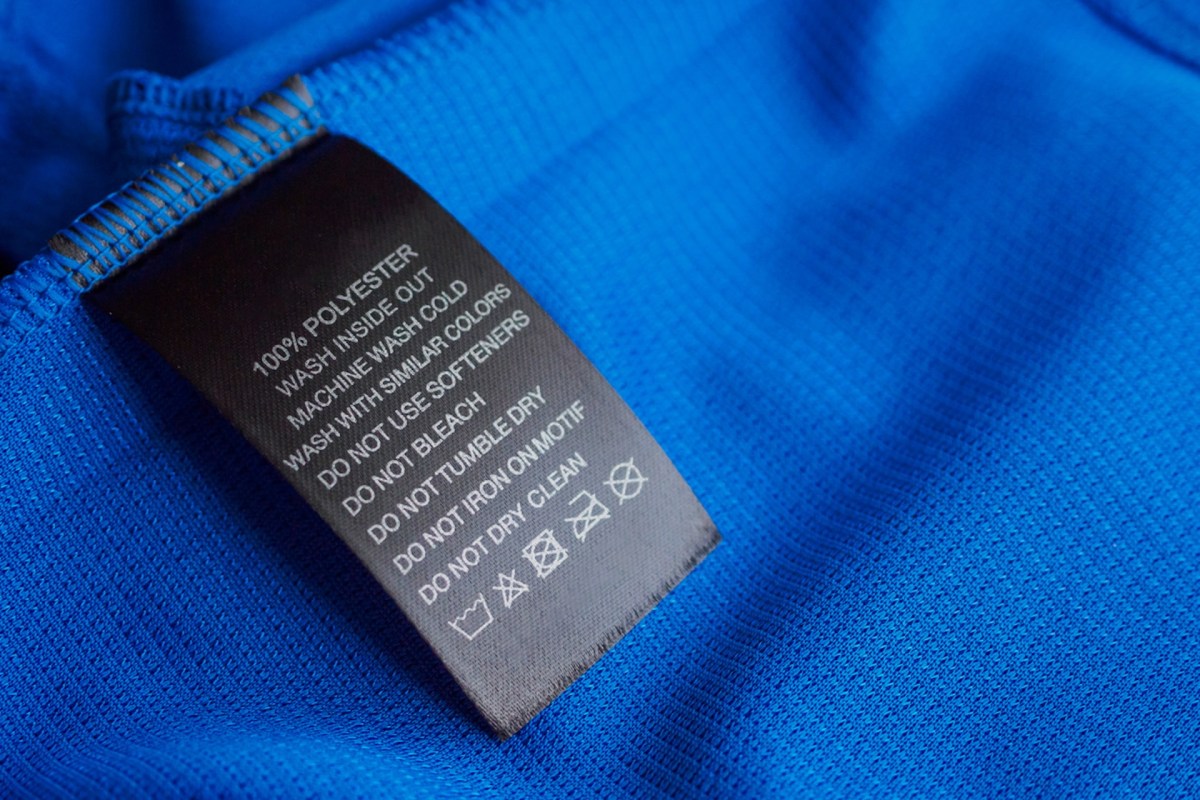A 2023 survey has revealed that many Americans value sustainability — but there's a gap between perception and reality, particularly as it relates to plastic production and the fashion industry.
What happened?
Protein Evolution partnered with Wake Research to conduct a groundbreaking public option survey and discovered that almost 70% of Americans don't know plastic is made from crude oil.
While most agreed that plastic waste was a major point of concern, they also greatly overestimated how much of the material was repurposed or recycled, with a whopping 98% of respondents off the mark when it came to textiles.
The survey found that 27% of respondents believe that none of their clothes contain any plastics, but 70% of apparel is made with plastic-based fabrics such as polyester.
Additionally, around 30% think at least half of garments receive a second life. But as has been covered prominently in a recent HBO documentary about the fast fashion company Brandy Melville, mind-boggling totals of textile waste are sent to places like Ghana (reportedly a whopping 15 million unwanted garments arrive in the capital of Accra every week) and Chile, where the unwanted items often enter waterways, the ocean, or even giant piles in the desert that can be seen from space.
And when it comes to plastic overall, Protein Evolution reported that 93% of those polled "overestimate the percentage of plastic products that are recycled and reused each year." The actual U.S. plastic recycling rate is around 5-6% overall, according to a 2021 report by Beyond Plastics.
Why is this knowledge gap concerning?
It is difficult to make informed decisions about sustainable practices without accurate information, and our actions impact not only our environment but also our health.
More than 100 million tons of garments are thrown into landfills each year, contributing to the increasing problem of microplastic pollution. These tiny particles often contain per- and polyfluoroalkyl substances (PFAS), also called "forever chemicals," which have been linked to some cancers and reproductive issues.
The fast fashion industry is well known for churning out high volumes of products using cheap plastic-based materials that don't stand the test of time. That not only feeds into the sector's polluting practices but also costs more money over time than investing in higher-quality items meant to last.
"The future is going to be what we design it to be," Yale University professor and Protein Evolution science adviser Paul Anastas told Just Style. "If people knew that most of their clothes are petroleum-based, coming from an oil rig, they would probably demand that we do better. Solving the problem of plastic waste will require a variety of strategies and new technologies to move toward sustainable and circular materials."
According to the survey, 76% of Americans think it is "very or extremely important" for brands to incorporate more recycled materials into their clothing, while almost 66% said they'd spend more cash for items made from recycled polyester.
🗣️ Which eco-friendly initiative would make you most likely to buy products from a clean beauty brand?
🔘 Using less plastic packaging 🗑️
🔘 Using more organic ingredients 🌿
🔘 Recycling empty containers 🫙
🔘 I don't buy clean beauty products 🚫
🗳️ Click your choice to see results and speak your mind
What can be done about plastic waste from textiles?
Protein Evolution's survey discovered that only 25% of respondents ended up recycling their clothing and apparel — even though donating to a charity or thrift shop was the most common way of repurposing items at 83%.
The secondhand apparel market is only getting more popular, though, with many consumers scoring amazing deals on rare and valuable items from thrift stores. Turning to secondhand shops first is one way to help.
Meanwhile, some major companies, like Patagonia, Madewell, and Levi's, have programs that incentivize sending your unwanted clothes back to them for store credit. Supporting brands known for repurposing materials is another option.
If you don't know where to begin, learning how to identify greenwashing can assist you as you navigate the consumer landscape with an eye on a cleaner, healthier future.
Join our free newsletter for cool news and actionable info that makes it easy to help yourself while helping the planet.









